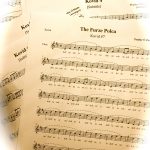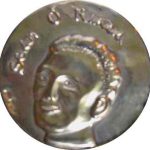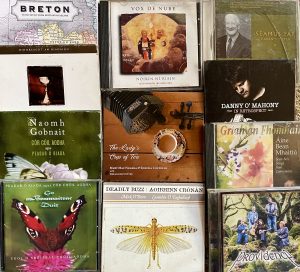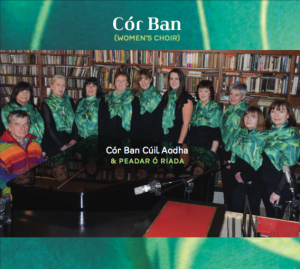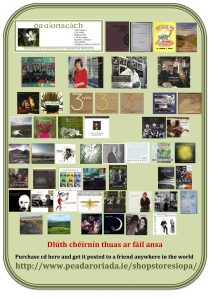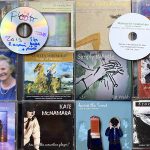An Ghaeilge
| July 19, 2011 | Posted by peadar under Scríbhneoireacht / Writing |
Comments off
|
An article published in the Cork Evening Echo to coincide with the Oireachtas na Gaeilge Festivel held in Cork during the first week of November 2005, when I was chairman of the local organizing committee.
I have a friend who will be a 106 next June, le cúnamh Dé. When he qualified as a teacher during the years of Irish rebellion a friend of his, John Collins, asked him if he spoke Irish. “No” says Paddy. “Well” says John (brother to Michael Collins) “we are building our own country here and we will have our own educational system. We will use our own language. Go down to Tuirín Dubh in Béal Átha an Ghaorthaigh and learn the language if you are going to be a teacher in this new country of ours”.
What happened to their dream? We have had so much plámás and palavour about the language and scarcely a word of it abroad in the community today. We have had so many promises, a few threats, policy documents and political perorations. Yet the country is now further away from the goal of having our own language as the national lingua franca.
It is not a case of displacing English but there is so much more you can say in Irish. Now that we travel the world there are many of us who regret not having that extra bit of sophistication and being able to speak our own language. Never shorten a ladder - you will never replace the missing steps. Yet after eighteen years or steps learning the Irish language most people I meet have never passed the first rung. Most have a yearning to reach the middle at least and to be able to converse in their own native language. So what the hell is wrong? Why is the Irish language such a nasty bitter experience for so many students? My belief is that children pick up a negative vibe from their earlier teachers and this coloures them all the way through the educational system. There are noble exceptions.
Where a person with a love for the language has been at work, the lasting results of their labour can be seen in many ways throughout the community. A sense of pride in identity ripples out from their activities. This is quite often in a secondary or tertiary way via a Christmas play or success in competitions, a sense of history and pride of place which in turn evokes support for other community activities - supporting a local team or keeping a village tidy or a commitment to caring for other members of the community. I heard a quotation from such a person last Friday – “Gaeilge marbh – Éire balbh.” I believe this to be true. For I have seen it said that the average vocabulary of an English speaker is about 400 words. It is after all the language of the world, the easiest to learn, the fastest way to communicate today. The daily vocabulary of an Irish speaker is said to be 1400 words or so. Irish is a very descriptive and definitive language. The Irish version of our constitution takes precedence over the English translation. And language reflects the mind that uses it. Is it any wonder that English speaking Irish people are so successful when writing in the English language? Their instinct or “dúchas’ is to poke out the corners of language, to have a rhythm or flow to their expression of thought.
Here in Cork we always had a love of our language. Just look at the tam ratings for Irish language programming on tv and radio. Our first two Lord Mayors bravely proclaimed their pride by the use of our language before they gave their lives for our freedom. When you join the ‘Rebels’ on hurling or football final days just take a look at all the flags with “Corcaigh” rather then “Cork.” There is a kind of competition amongst supporters to find the most unique “Rebel” shirt. I personally have two that I am proud of – the one, red of course, with “Poblacht daonlathach Chorcaí” and another advertising our local “An Muileann agus an Poc ar Buille”. It would surely be a surprise to many to learn that may of the hurlers and footballers speak Irish and use it on the playing field. But then why be surprised? Is that not the essence of being a rebel these days? To strike out and do something different and unique. To set one self apart and to believe that we follow the true ritious path. The surprise is that not many other people in the country feel the same way or do they? Do you? It is all very simple in the end – just use the cúpla focal you have and the rest will follow. And here are two “Sláinte” (instead of that awful mediocre ‘cheers’) and “slán” instead of goodbye.
If you think that the country has a problem with regard to the Irish language just think about us poor so and so’s in the Gaeltacht. Half of us are still in the last century and think we will suffer because we will have to emigrate – with “no proper and modern english! More of us are fanatical supporters and more of us speak it out of a sense of duty while more wish the whole question would just dissapear. And dumped heavily on our backs is the idea that we are responsible for maintaining and preserving the language. Actually I do not remember any of us Gaeltacht people being asked if we wanted this noble and onerous task.
And so to Mr Enda Kenny’s statement. There is a truth hidden somewhere in his idea. There is something very wrong with the current state of affairs with regard to the teaching of Irish. But that is neither the fault of the language or the students but rather of the teachers and the system that we use. Some people did warn us against the closure of the preparitry schools in the early sixties. But most people I have spoken to on this subject during the last week have been very certain that abandoning the language is not the answer. We all need a way to learn to speak it. Not everyone wants to be a poet or bard – yet. We just want to be able to speak it when we want to. If three year old kids can learn it in a few weeks surely, surely it must be within the capacity of the department of education to make us reasonably fluent in, say twelve years? In the mean time good people – use the cúpla focal you have and Cork city and county may show the rest of the country a thing or two – not for the first time.

